- 13 Aug 2023

The Rise of Robots in Travel Industry and its Role in Enhancing Customer Experience

Robots are no longer relegated to the realm of science fiction. These mechanical marvels have seamlessly integrated themselves into the travel industry, changing the way we experience, manage, and navigate the world. From robot concierges to luggage-toting automatons, this blog delves into the evolving world of robots in the travel and tourism sector as robotics is quickly gaining recognition due to shifting customer preferences. The travel industry, in particular, stands to benefit as robots increase operational efficiency by enhancing customer service and guest experience.
Robots in the travel industry are the ‘new normal’
A study conducted by GlobalData in 2021 indicated that more businesses might engage robots to minimize long-term expenses and adapt to the changing demands of consumers. Robots come with several pivotal advantages besides generating enthusiasm, publicity for the company, and an enhancement of the brand image. With travelers still concerned about their safety in one way or another, robots help allay their anxieties and fears while lowering labor costs for companies. You can even say that the global pandemic gave rise to the age of robotics in the travel sector.
Top 6 ways robots are changing the face of travel/tourism sector
Simply put, a robot is a device that carries out certain functions on command automatically and precisely. Even manual work is carried out besides tasks involving text or speech. For the travel industry, AI is the most interesting robot-related tech that has been extremely advantageous. It speeds up machine learning and can carry out complex activities that conventionally require human intervention. Typically, the tech involves speech recognition, understanding human interactions, displaying logic and reasoning, and problem-solving.
-
Responding to customer queries
In the travel sector, robotic technology is gaining popularity quickly as customer habits slowly take a turn towards self-service, transparency, and speed of outcome. For instance, you can make them available 24/7 for immediate responses to common queries – a feat difficult for human workers. The strategy also reduces queue sizes.
-
Front desk assistance
Other fascinating uses include employing robots to operate the front desk at client information stations, where the tech uses facial and speech recognition to provide salient services to clients. The world’s first robot-staffed hotel is in Japan.
-
Concierge service
Incidentally, on the same lines, robots can also act as concierges that can respond to queries employing speech recognition technology. Additionally, it gains learning; the more it is utilized, the better it gets at responding.
-
The suitcase
One of the most innovative uses of robotic tech in travel is the suitcase, which removes the hassle of carrying and pulling along during airport sojourns. Using collision detection technology, the suitcase has the ability to follow its owner independently while turning 360 degrees where required.
-
Airport security
Security bots are set up at airports to improve security and even assist human staff. It helps in the detection of concealed armaments and other hidden items that are not allowed on flights.
-
Filler tasks
Travel agencies can deploy robots to keep customers entertained while they wait during busy times. Thus, information gathering about what customers need becomes extremely easy. Bots can also be used for hotel check-in and check-out processes to provide valuable customer service.
Why are robots important in tourism
Undoubtedly, robots hasten processes, deliver high-quality outputs, and, most importantly, cut operational expenses. We can rely on them to work safely and productively around the clock with no breaks or vacations. Additionally, robots come with a crucial attribute loved by most in the industry - automation. Enhanced customer experiences and allowing human elements to focus on other tasks while taking over redundant ones are just a few key benefits of robots in the travel and tourism sector.
Recent Post
-
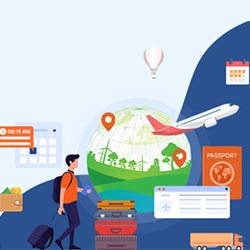
Sustainability in Travel : How travel technology drives eco-conscious tourism
25 Apr 2024
-
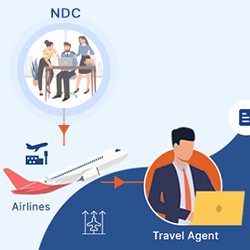
The Collective Power of NDC for Airlines, Agents, and Customers and its benefits in the travel chain
11 Apr 2024
-
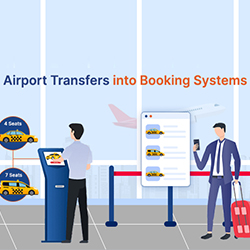
Streamlining Travel Experiences: The Importance of Integrating Airport Transfers into Booking Systems
27 Mar 2024
-

Hotel API Integration: Why it’s important for travel businesses
18 Mar 2024
-
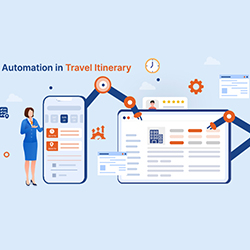
Automate the itinerary building process 5 reasons why travel agents need a travel itinerary tool
27 Feb 2024
-
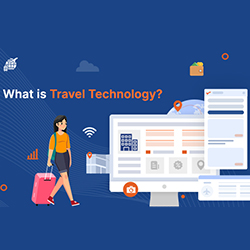
What is travel technology? An overview and its role in the travel / tourism industry
12 Feb 2024
-

Why Every Travel Agent needs an Online Booking System in the Modern Digital Age
18 Jan 2024
-

The Role of Analytics in the Travel Industry
08 Jan 2024
-

How ChatGPT can improve the Travel and Tourism sector with it’s AI capabilities
26 Dec 2023
-

AI-powered Journeys: How AI is Reshaping the Travel Landscape this Holiday Season
22 Dec 2023
-

The Crucial Role of an Automated Mid-Back Office Solution for Streamlining Travel Operations
11 Dec 2023
-
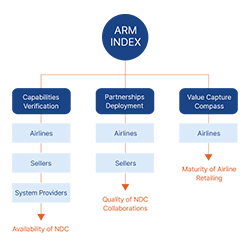
A Guide to IATA ARM (Airline Retailing Maturity) index
30 Nov 2023
-

A Guide to Corporate Travel Management
16 Nov 2023
-

The Role of NFC in the Travel Industry
02 Nov 2023
-

World Tourism Day 2023: Unveiling the Future of Travel Technology
27 Sep 2023
-
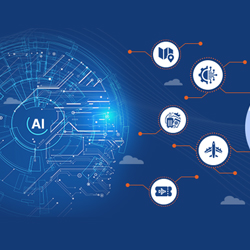
How is AI emerging in the travel industry?
21 Sep 2023
-
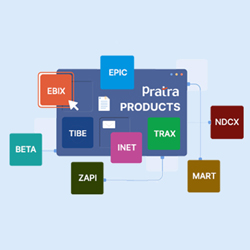
Pratra’s Innovative Travel Technology Products
04 SEP 2023
-
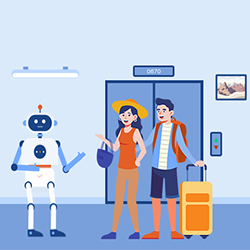
The Rise of Robots in Travel Industry and its Role in Enhancing Customer Experience
13 AUG 2023
-
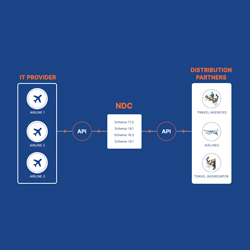
Difference between Conventional APIs and NDC APIs
01 AUG 2023
-
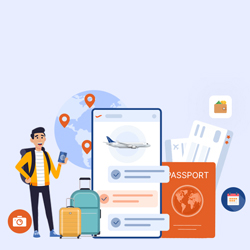
What is Travel API, and how can it help your business?
03 JUL 2023
-

Using AI to Empower Travel Advisors
05 Jun 2023
-
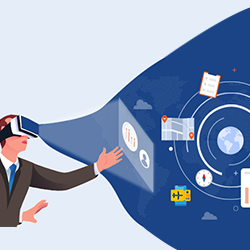
Top 5 Benefits of AR/VR Technology in the Travel and Tourism Industry
17 May 2023
-

Facial Recognition Technology and Contactless Check-ins in Modern Airports
05 Apr 2023
Let’s connect!
Our expertise is here at your disposal. We can’t wait to make use of it and help you succeed.

